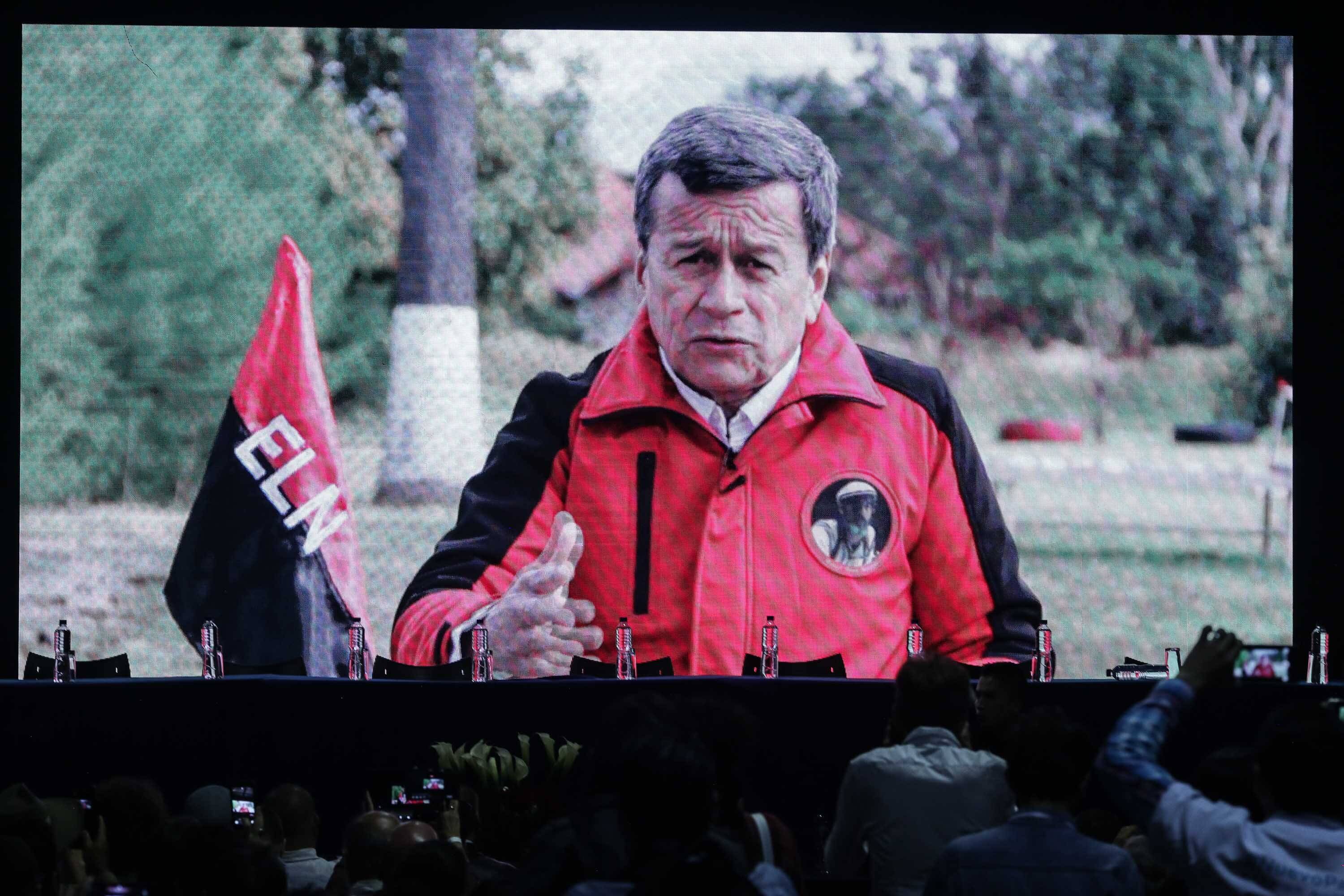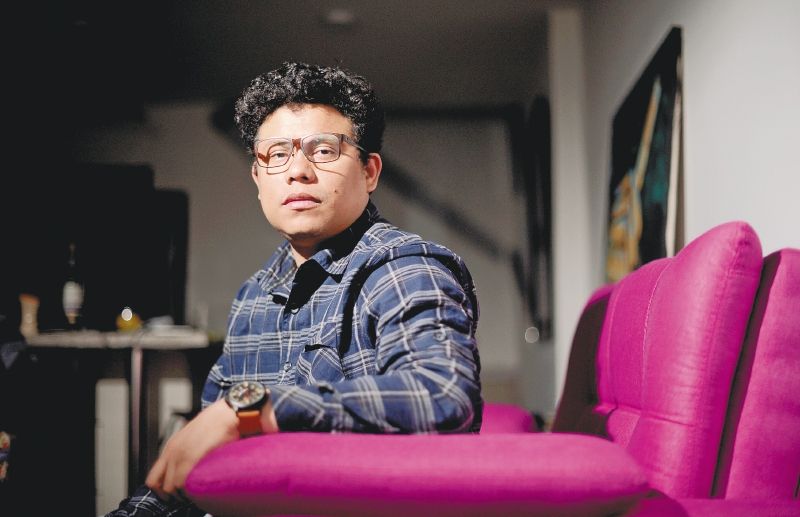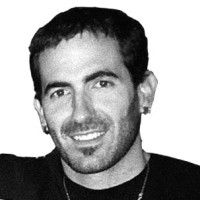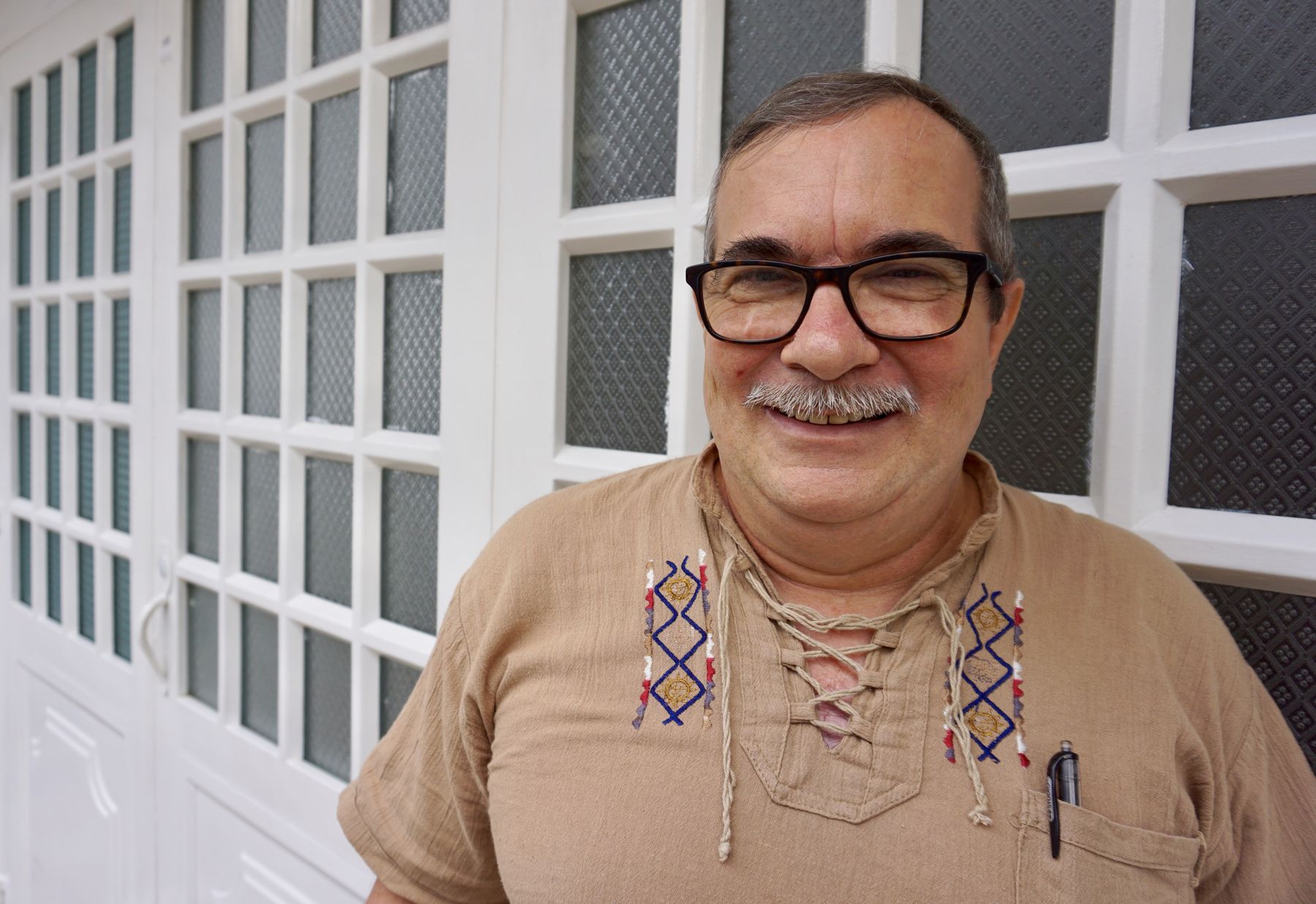"The Havana agreements must be upheld, not peace"
- The political situation in Colombia is not good. Since the signing of the peace agreements in December 2016, there have been more than 160 ex-combatants and more than 600 "social leaders" killed. The situation inside the FARC is very conflicting. Historical leaders like Ivan Márquez or Jesús Santrich have come to the station. The official line presiding over ‘Timochenko’ has made clear about them: “Why expel the self-expelled from the FARC?” We have talked to the FARC spokeswoman in Venezuela, Lina Arrangi, about this “very sensitive” landscape. He is very critical, even pessimistic, but he does not want to close the doors to hope.

In recent years there have been many changes in Colombia. Elections, peace agreements, new civil strife and repression... What is the current photograph?
The landscape of the back of the photograph is the same since the 70s of the death of Jorge Eliécer Gaitán (1948). Since then, there has been a pact between the elites, who have experienced different moments until the current hegemonic bloc of power was stabilized. Obvious moments of war are interspersed with shorter attempts at pacification. Not peace processes, pacification processes. This hegemonic bloc consists of owners of capital, military, church and others, as well as paramilitaries. It's the result of that Duke, it represents that block.
The main feature of the current state is its contraindication. A state focused on the “interior enemy”, those who are killing: social leaders, former guerrillas...
The agreements between the government leading Santos and the FARC were signed in December 2016. Can we talk about the peace process today?
If we listen to propaganda, yes. According to that, it seems that we are at a time of withdrawal from the war, in one of those cyclical sections of Colombian history. The multinationals, promoters of gigantic agricultural or mining projects, after all powerful ones, wanted that kind of situation that is often called peace to develop their projects, a Roman pax. This explains the opening of this last section of pacification.
If you ask the people: Peace or war? The people will respond to peace. And just as it is lawful to take arms when there is reason, it is also lawful to approach peace. In the case of the FARC, that peace had its last name: peace, with justicia.Cuando the process began, many agents and people from Colombia passed through Havana, many of them, who gave their opinion to the FARC. And it was decided that yes, that he should try, thinking that the process could be the way to a political solution to the armed conflict. A strong commitment was made to this.
The State is meeting very little of the commitments it has made.
We are currently paying for some mistakes. Those who have already been accepted by the most subtle and honest commanders. There's a lot of self-criticism. Iván Márquez, for example, pointed out that giving the weapons as they were delivered was a serious mistake [later, Rodrigo Londoño 'Timochenko' proved harsh against him. And against the statements of Londoño, at the same time, the FARC deputy, Benedicto González]. At first it was agreed to hand over escalating weapons, which was not done afterwards, I do not know why. But the weapons were handed over, with great guerrilla pain.
In the Havana agreements there was a preamble, always called “pending”, very significant. I am referring to military doctrine and the economic model. However, the Havana agreements are closed and signed in Cartagena. An agreement that leaves out the military doctrine that considers citizens as internal enemies, in Colombia, is lame on the left leg. In addition, in order to stifle the agreed measures, the Government proposed a referendum on an issue raised. We were talking about a constituent process, and instead the citizens were asked: Do you like peace, yes or no? He wins no, even for a few tenths.
Has 'no' conditioned the development of the agreements?
A review of the Havana agreements is made, from a reduction logic. Many of the Havana agreements are being negotiated and signed again, cut back, cut back and despised. That is why I say that it is the Havana agreements that have to be claimed, not the paz.Despu of that there have been more negotiations. Unofficial, closed by public signature. For example, the popular anti-corruption consultation, driven by certain sectors on the left. It was lost by little. The following day, a general agreement on corruption was signed, which included all political representatives: From Duque to Rodrigo Londoño. That for me is a renegotiation.
The situation of former guerrillas and social leaders in security matters is critical. The agreement, as Santrich said, is a failed agreement (“failed agreement”). The UN has more harshly criticised the breach of the agreement than some sectors of the FARC, including Citizens. Many of the points are incomplete and some of the assumptions have been very poor. The agreement is also apparent, for example, until the economic model is called into question. There is also a leading role given to Colombia in the attacks on the Venezuelan government. This makes the situation very sensitive.

The internal tensions and divisions of the FARC are public. The readings and political positions of each other are very different.
I do not want to be a spokesman for the differences. But the latest FARC communiqué from Colombia says it will not expel those who have already excluded themselves from the privacy policy. And it refers to those who have abandoned themselves, to those who have had to take other paths to save their lives. Otherwise, they would be dead. Santrich and Márquez were in Bogotá when defining the structures and steps to follow. But then you've seen the thymus and the lockdown. Judicial proceedings were initiated against Santich based on lies or were directed against Márquez, although fortunately they did not reach him... That is where we have to protect it. The right to life is sovereign.
Alliances between forces on the left are currently being promoted. They say they want to oppose the bloc of power. But they're electoral alliances, they're purely electoral alliances. I don't see you the future. My point of view is negative. And I'm not alone.
Along with all this, it has to be said that there is tremendous resistance. The students, the people of origin, the blacks, the women and the rest of the street have risen up. Not emphasising this would be unfair.
A guerrilla group named after the FARC has been publicly presented in June in western Colombia. In July, two soldiers were killed in an ambush and several media outlets took over the FARC's "dissidents". Can there be a significant return to the armed struggle? Or what would some historic leaders protect you?
According to what I have followed and what I have read, the sectors you mentioned are committed to peace. But not with Roman peace, with a peace that will betray itself. The FARC always talked about a peace linked to social justice, a Colombia with a space for all, a political solution to the conflict.
This cannot be replaced by an attitude “we will defend the peace agreement in any condition”, as has been said from some quarters. 52 years of war, with so many deaths, suffering, so precarious lives and sectors... All this cannot end in a single silent witness. But with the defence of an agreement, which is not the end, but that of Havana. There will be those who continue to fight, I can no longer talk too much about this.
It should not be easy to experience these kinds of situations internally.
I think the fighting people don't withdraw. In cases such as that of Santrich it has been seen that there are people who continue to uphold the principles. Those who are not allowed to be fooled by those who defend the agreement in any way. Like Rodrigo Londoño, he stated that he would collect and paste from the land the smallest parts of the agreements. It seems poetic, it suggests artisanal work, but we know very well that while we bend to collect fragments the high classes of Colombia kill us.
I am not in Colombia, but at that distance I see that the descendants of blacks brought from Africa have risen up in the struggle, and also the indigenous peoples, in a spectacular way. There are those who are going to respond, the people are not going to allow them to deceive you.
2019an Ivan Duqueren Kolonbiako Gobernuak bake elkarrizketak apurtu arren, ELN erakundeko gerrilari talde batek bakegintzan lanean dihardu Kuban. Habanatik erantzun dizkigu galderak Askapen Nazionalerako Armadaren Komando Zentraleko kide eta negoziazio taldeko buru Pablo... [+]
Kolonbiako Gobernuak hartutako erabaki batek hautsak harrotu ditu berriki: Jorge Rodrigo Tovar aukeratu dute biktimen koordinatzaile kargurako, Jorge 40 ezizenez ezagutzen den buruzagi paramilitarraren semea. Haren agindupean torturatu eta hil zituzten biktimen familien samina... [+]





















